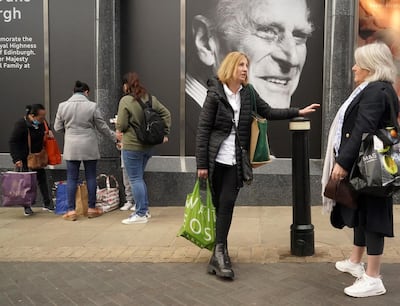Britain’s borrowing hit £303.1 billion ($420.14bn) in March, after emergency pandemic support measures sent the annual figure to the highest level since the end of the Second World War.
The surge in public sector debt over the financial year, which ended last month, was £246bn higher than in the previous 12 months, with borrowing at 14.5 per cent of economic output, the highest ratio since 1946 when the figure was 15.2 per cent, according to the Office for National Statistics.
Borrowing in March alone hit £28bn, a record high for that month, with the overall numbers reflecting the sharp rise in public sector spending and tax cuts as UK finance minister Rishi Sunak tried to offset the economic hit from the Covid-19 crisis.
“The eye-watering level of government borrowing has created something of a conundrum. It’s so high it seems unscalable but so high not paying it back leaves the country in a precarious position,” said Danni Hewson, a financial analyst at AJ Bell.
Total state debt now stands at £2.141 trillion, or 97.7 per cent of gross domestic product – the biggest proportion since the early 1960s.
Mr Sunak has spent £352bn on emergency measures during the crisis, in particular a furlough scheme that has paid a large chunk of private sector wages for millions of Britons.
“Higher taxes may seem to be an inevitability but balancing that with the need for consumers to feel confident enough in their future to spend the country into recovery requires delicacy," Ms Hewson said.
Britain's economy slumped by almost 10 per cent last year, its biggest collapse in more than 300 years, with the UK one of the countries hardest hit by the pandemic, recording the fifth highest number of deaths at more than 127,000.
However, the country’s rapid vaccination programme has boosted the outlook for the economy, which is expected to grow by more than 5 per cent this year and next, according to the International Monetary Fund.

Separately, retail sales rebounded 5.4 per cent in March compared to the month before, according to the ONS, with the biggest rise coming from clothing sales volumes, which recorded a 17.5 per cent increase.
Other non-food stores also reported a rise of 13.4 per cent, with medical goods suppliers saying older consumers were snapping up mobility equipment to venture outside after being vaccinated.
Garden centres and flower shops also reported monthly growth of 7.4 per cent as consumers spruced up their outside spaces before the summer.
The surge in sales came as consumers prepared for the partial lifting of lockdown restrictions in England and tighter curbs elsewhere in the country.
Darren Morgan, ONS director of economic statistics said retail sales in March were higher than the level seen in February 2020, before the pandemic hit.
“The approaching spring enticed people into garden centres, which had a good month, while clothing sales sprang back to life as people looked to update their wardrobe in anticipation of lockdown easing," Mr Morgan said.
“Fuel sales also recorded a strong month as the easing of movement restrictions meant people could again travel further afield.”
Lisa Hooker, consumer markets leader at PwC, said the retail figures for March were better than expected, with both an improvement on February’s positive performance and an 8 per cent increase on the same month a year earlier.
“This has occurred even with non-essential stores closed across the country and against the comparison of grocery stockpiling at the start of the first lockdown last March.”
Consumer sentiment is now at its highest level since before the Global Financial Crisis, said Ms Hooker, with retailers now hopeful the positive signs can translate into a sustained return to physical stores after they reopened this month.
“The real test of whether pent-up demand can be turned into actual sales will come with next month’s figures,” Ms Hooker said.
The Bank of England is waiting to see the extent to which households will spend their lockdown savings as the restrictions ease, as it assesses how long it needs to keep its huge stimulus plan in place.
Britons have built up £150bn in excess savings during the pandemic as a series of lockdowns prevented them from spending.
Meanwhile, British businesses enjoyed a surge of new orders in April amid the lifting of some Covid-19 restrictions, according to a "flash" reading of the UK Composite Purchasing Managers' Index (PMI) from IHS Markit
The index rose to 60 in April from 56.4 in March, its highest reading since November 2013, indicating the UK is set for a rapid rebound.
More on the UK economy
UK economy grew in February as trade with the EU rebounds
Pandemic hits income of UK households harder than in France and Germany
No jab, no job’: The challenges of managing Britain’s partially vaccinated workforce


